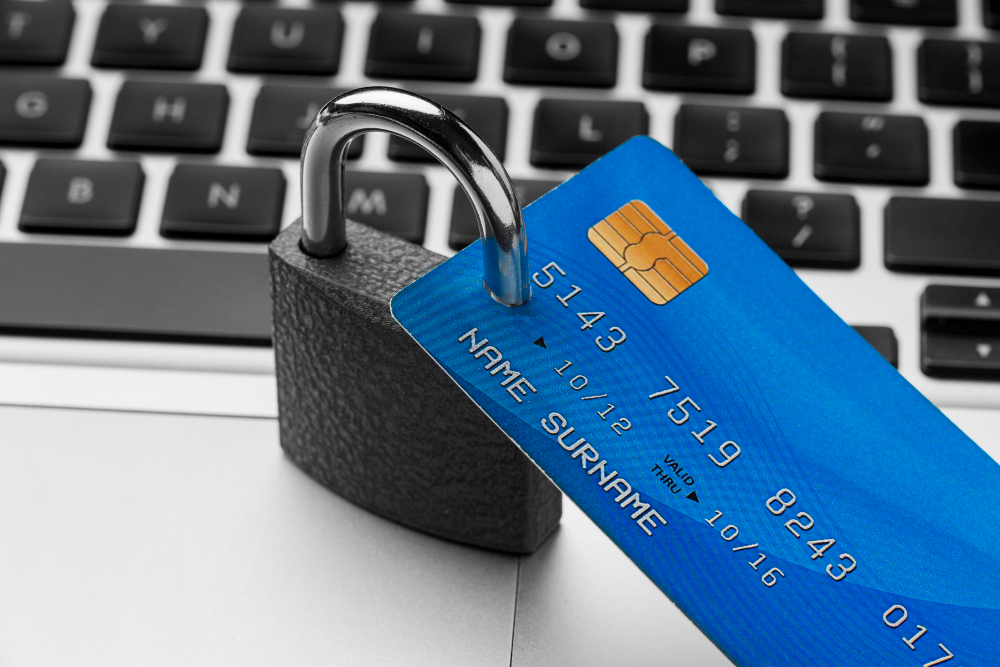Credit cards can be valuable financial tools when used responsibly, offering convenience, rewards, and the opportunity to build credit. However, many people fall into common pitfalls that can lead to financial trouble and damage their credit scores. In this guide, we’ll explore some of the most common credit card mistakes and provide practical tips on how to avoid them. By understanding these pitfalls and implementing smart credit card practices, you can stay on track toward financial health and success.
Credit Card Pitfalls: Common Mistakes
- Overspending Beyond Your Means:
- Mistake: Using credit cards to finance a lifestyle beyond your means can lead to high levels of debt and financial stress.
- Solution: Create a budget and stick to it. Only charge what you can afford to pay off in full each month. Track your spending regularly to ensure you’re living within your means.
- Making Only Minimum Payments:
- Mistake: Making only the minimum payment on your credit card balance prolongs the repayment period and accrues significant interest charges.
- Solution: Always strive to pay more than the minimum payment, ideally paying off the balance in full each month. If you can’t pay the full balance, pay as much as you can to minimize interest charges.
- Ignoring Due Dates:
- Mistake: Missing credit card payments or paying late can result in late fees, penalty interest rates, and damage to your credit score.
- Solution: Set up automatic payments or reminders to ensure you never miss a due date. Pay your credit card bill on time, every time, to avoid unnecessary fees and protect your credit standing.
- Carrying a High Balance:
- Mistake: Carrying a high balance on your credit card relative to your credit limit can negatively impact your credit score and increase your credit utilization ratio.
- Solution: Aim to keep your credit utilization ratio below 30% by paying down balances and avoiding maxing out your credit cards. Consider making multiple payments throughout the month to keep balances low.
- Applying for Too Many Credit Cards:
- Mistake: Applying for multiple credit cards within a short period can signal to lenders that you’re a high-risk borrower and lower your credit score.
- Solution: Be selective about the credit cards you apply for and only apply for new credit when necessary. Research cards that align with your needs and financial goals before submitting applications.
- Closing Old Credit Card Accounts:
- Mistake: Closing old credit card accounts can shorten your credit history and decrease the average age of your accounts, which may negatively impact your credit score.
- Solution: Keep old credit card accounts open, especially if they have a positive payment history and low or no annual fees. Use them occasionally to keep them active and maintain a long credit history.
- Falling for Introductory Offers Without Reading Fine Print:
- Mistake: Signing up for a credit card based solely on introductory offers or rewards without understanding the terms and conditions can lead to unexpected fees or limitations.
- Solution: Read the fine print of credit card offers carefully, paying attention to interest rates, fees, rewards structure, and any limitations or restrictions. Choose a card that aligns with your financial needs and goals beyond the initial promotional period.
FAQs
- How do I know if I’m overspending on my credit cards?
You may be overspending on your credit cards if you consistently carry a balance from month to month, struggle to make more than the minimum payment, or find yourself relying on credit cards to cover basic expenses. Keeping track of your spending and comparing it to your income can help you identify potential overspending.
- What should I do if I can’t afford to pay off my credit card balance in full each month?
If you can’t pay off your credit card balance in full each month, prioritize paying more than the minimum payment to reduce interest charges and pay down the balance as quickly as possible. Consider creating a budget and cutting expenses to free up funds for debt repayment.
- How can I avoid missing credit card due dates?
Setting up automatic payments or reminders can help ensure you never miss a credit card due date. You can schedule automatic payments to cover the minimum payment or the full balance each month. Alternatively, set calendar reminders or enable notifications on your phone to remind you of upcoming due dates.
- Is it bad to have a high credit card balance?
Carrying a high credit card balance relative to your credit limit can negatively impact your credit score and increase your credit utilization ratio. Aim to keep your credit utilization ratio below 30% to maintain a healthy credit score and minimize the risk of credit card debt.
- How many credit cards should I have?
The number of credit cards you should have depends on your individual financial situation and spending habits. Some people find it manageable to have multiple credit cards for different purposes, while others prefer to stick to one or two cards. Ultimately, it’s essential to only have as many credit cards as you can manage responsibly.
- Should I close old credit card accounts that I no longer use?
Closing old credit card accounts can shorten your credit history and decrease the average age of your accounts, which may negatively impact your credit score. If the card has no annual fee and a positive payment history, consider keeping it open to maintain a long credit history.
- What should I look for in the fine print of credit card offers?
When reviewing the fine print of credit card offers, pay attention to interest rates, fees (such as annual fees, late fees, and foreign transaction fees), rewards structure, introductory offers, and any limitations or restrictions. Understanding these terms can help you make informed decisions about which credit card is right for you.
Conclusion
By avoiding common credit card pitfalls and adopting smart credit card habits, you can harness the benefits of credit cards while minimizing the risks. Take control of your finances by living within your means, paying your bills on time, and using credit responsibly. Remember that credit cards are tools to be used wisely, not excuses for overspending or financial mismanagement. With diligence and discipline, you can navigate the credit card landscape successfully and build a solid foundation for your financial future.


















